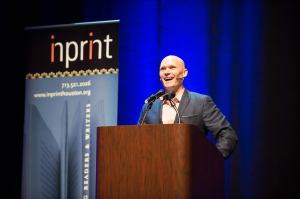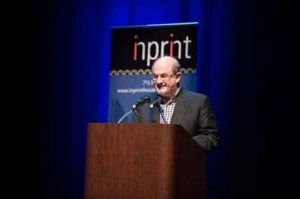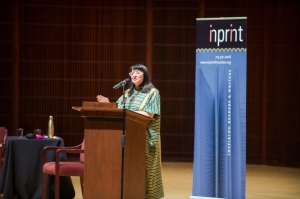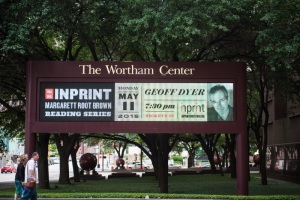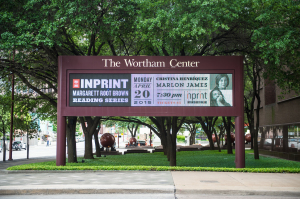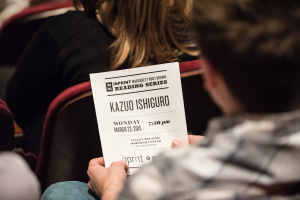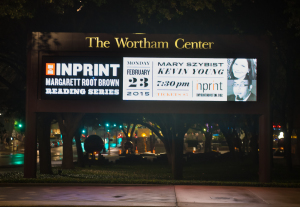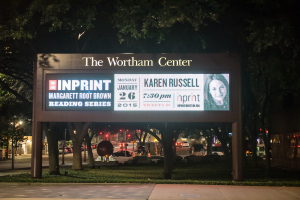“The Way Language Can Become a Living Thing”: Tracy K. Smith’s Extraordinary Light
March 11, 2016, by Doni Wilson
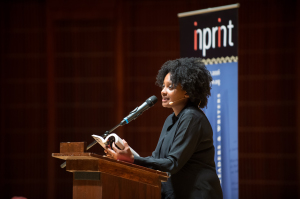 I walked all over Rice University before heading to Tracy K. Smith’s reading for the Inprint Margarett Root Brown Reading Series last Monday. I was excited: it was perfect weather—clouds but not raining, warm but not hot, cool but not cold. The light was starting to dim. So what do you do about this—inner or outer weather? Prose or poetry? Luckily, Smith does both.
I walked all over Rice University before heading to Tracy K. Smith’s reading for the Inprint Margarett Root Brown Reading Series last Monday. I was excited: it was perfect weather—clouds but not raining, warm but not hot, cool but not cold. The light was starting to dim. So what do you do about this—inner or outer weather? Prose or poetry? Luckily, Smith does both.
Rice University President David Leebron did some introductions, reminding those of us sitting in the audience that it was the last day of Black History Month, and the ninetieth anniversary of that tradition. It was also the fiftieth anniversary of the first African-American undergraduates attending Rice. Smith herself is interested in the intersections between the undergraduate experience and race, and read from her lyric and moving memoir, Ordinary Light, in which part of her narrative concentrates on how she felt as an undergraduate while taking courses that made her profoundly consider what “African-American Studies” meant not just in a course catalogue, but in her negotiations with others (including a white boyfriend who rejected her and broke her heart),and, most importantly, with herself. Her memoir was a National Book Award finalist—and one can see why: she explores in her juxtapositions of memory, epiphany, and speculation what her parents (particularly her mother) might have felt and experienced. Much of this is connected to her mother’s struggles with cancer while Smith was in her twenties—in which she was both “changed and consoled.” This was one of the challenges that allows Smith to intersect thoughts regarding race, family relationships, education, faith, and religion all in the context of a coming of age narrative that makes the reader feel like they are completely in the author’s head, with very little authorial distance employed—a technique that makes the reader trust Smith from sentence to shining sentence, although the light hardly seems “ordinary,” but clear and illuminating in a memorable and engaging way. Continue reading


